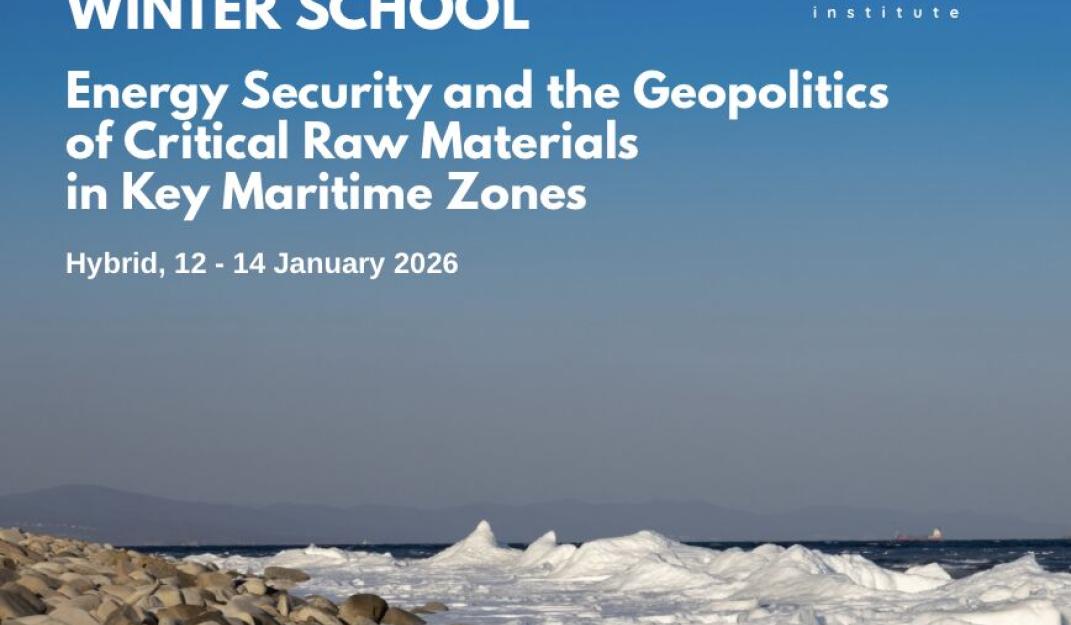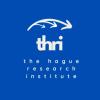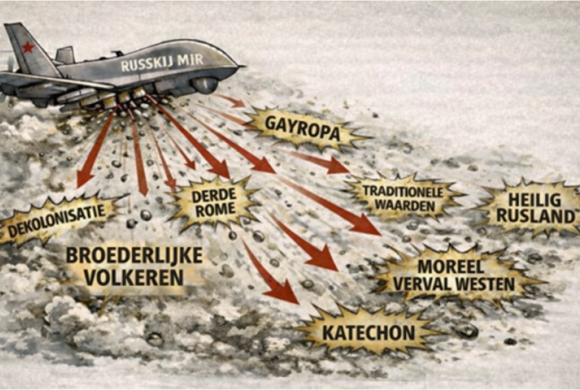Winter School: Energy Security and the Geopolitics of Critical Raw Materials in Key Maritime Zones

The global transition to renewable energy has dramatically increased demand for Critical Raw Materials (CRMs)—such as lithium, cobalt, rare earth elements (REEs), and copper, which are essential for electric vehicles, wind turbines, solar panels, and advanced energy storage systems. However, the extraction, processing, and supply of these materials are highly concentrated in specific regions, creating complex geopolitical, economic, and environmental challenges. We are excited to announce the 2026 Winter School on Critical Raw Materials and Energy Security, hosted by The Hague Research Institute.
This program provides an in-depth examination of the pivotal role CRMs play in the global energy transition, with a special focus on the geopolitical landscapes of the Caspian Sea, the Black Sea, and the Arctic Sea—regions that are becoming increasingly critical to global supply chains. The key questions that will be discussed are: What are the main drivers behind the surge in global demand for critical raw materials, and how do they intersect with energy security dynamics in key maritime zones? What role do major ports and logistics hubs play in facilitating secure, sustainable, and diversified supply chains for energy and critical raw materials? In what ways is competition over critical raw materials redefining the geopolitical importance of strategic maritime regions such as the Caspian Sea, the Black Sea, and the Arctic Sea? What are the risks of supply chain disruptions caused by geopolitical tensions or export restrictions? What role do international partnerships, the EU’s Critical Raw Materials Act (CRMA), and China’s Belt and Road Initiative play in ensuring secure maritime trade routes and sustainable resource access? Finally, how can littoral and transit countries—including those in Central Asia, the South Caucasus, and the broader Black Sea region—position themselves as strategic partners for the EU and other global actors in advancing energy and raw materials security?
Key Topics:
- Global CRM Demand and Supply: Understanding the increasing need for CRMs in renewable energy technologies and the challenges posed by supply chain concentrations.
- Regional Contributions: Analysing the roles of the Caspian Sea, the Black Sea, and the Arctic Sea in CRM extraction, transport and exportation.
- Geopolitical Implications: Examining how CRM distribution influences international relations, trade policies, and energy security, particularly in light of reports highlighting the evolving landscape of CRM supply chains and trade patterns.
- Sustainability and Ethics: Addressing the environmental and social impacts of CRM extraction and strategies for promoting sustainable practices.
- Policy Frameworks: Exploring international policies and agreements that govern CRM trade and their implications for the regions in focus.
Learning Outcomes:
Participants will:
- Gain a comprehensive understanding of the significance of CRMs in the energy transition and their geopolitical ramifications.
- Develop insights into the specific roles and challenges faced by the Caspian Sea, the Black Sea, and the Arctic Sea in the CRM landscape.
- Engage in critical discussions about policy measures, sustainability, and ethical considerations in CRM extraction and trade.
Who Should Apply:
This program is ideal for BA and MA students, PhD, researchers, policymakers, industry professionals, and anyone interested in energy policy, international relations, environmental studies, and regional studies pertaining to Eastern Europe, Central Asia, and the South Caucasus.
Program Details:
- Dates: 12-14 January, 2026
- Location: The Hague, Netherlands and Online Application Deadline: 21 November 2025
- Fees: 600 €(in person); 300 € (online) participation
Application Process & Requirements
- Applicants are required to submit a current CV and a one-page cover letter outlining their motivation and relevant experience.
Important Note: Participants need to cover their travel, food and accommodation costs.

The Hague Research Institute
The Hague Research Institute is an independent non-profit think-tank. Our goal is to provide both local and international audiences with clear policy analysis, opinion articles, and research about Europe’s connections with the South Caucasus and Central Asia.


